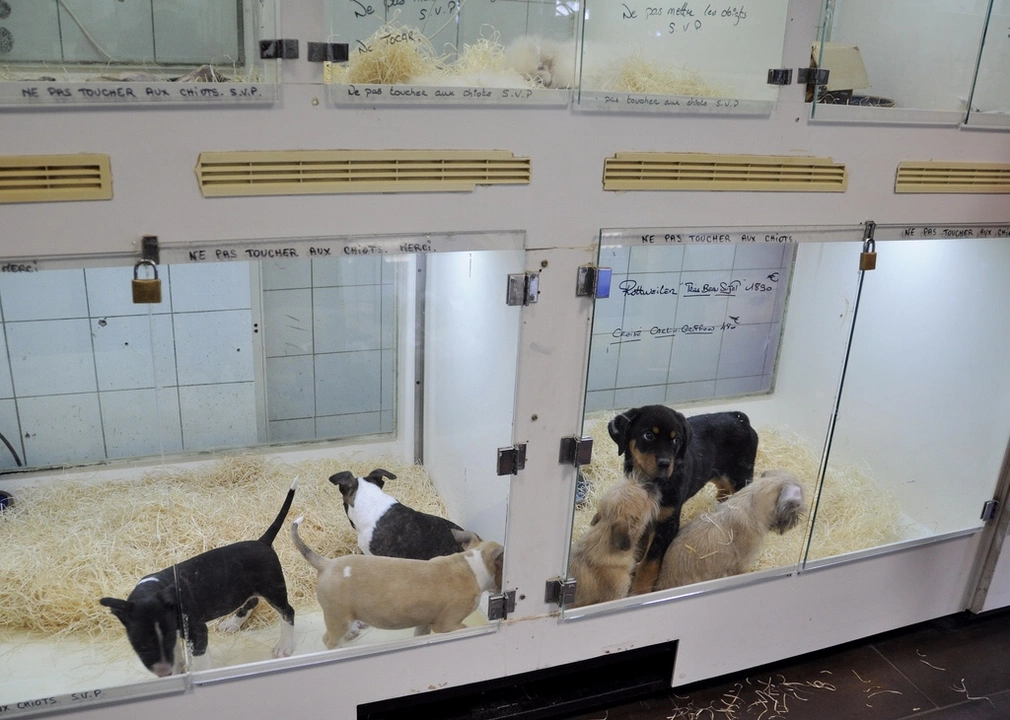Introduction: The Fate of Unsold Pets
As a pet lover and avid blogger, I often find myself wondering about the fate of animals that don't get sold in pet shops. What happens to these little creatures who, through no fault of their own, don't find their forever homes? In this article, we will explore the various possibilities for unsold animals, the ethical concerns surrounding this issue, and what we as consumers can do to help. So, let's dive in and learn more about the lives of these unsold pets and how we can make a difference.
Adoption Programs: A Second Chance at Finding a Forever Home
Many pet shops partner with local animal shelters and rescue organizations to find homes for pets that have not been sold. This collaborative effort helps to ensure that these animals get another chance at finding their forever homes. In some cases, pet shops may even offer discounts or promotions to encourage the adoption of these unsold pets. This not only benefits the animals but also helps to support the work of these rescue organizations.
Return to the Breeder: Back to Where It All Began
In some cases, unsold pets may be returned to their breeders. Breeders may have agreements with pet stores that allow the return of unsold animals within a certain timeframe. While this may not be the ideal situation for the animal, it does provide them with a temporary home and care. Additionally, some breeders may work to find new homes for these pets themselves, either through other pet stores or private adoptions.
Animal Auctions: An Ethical Dilemma
Unfortunately, not all outcomes for unsold pets are as positive as the ones mentioned above. In some instances, these animals may end up at animal auctions where they are sold off to the highest bidder. This practice is highly controversial, as it often leads to animals being sold to individuals who may not have their best interests at heart. Additionally, the conditions at these auctions can be less than ideal, causing unnecessary stress and suffering for the animals involved.
Donation to Educational Institutions: A Life of Learning
Another option for unsold pets is to be donated to educational institutions such as schools, colleges, or universities. These animals can serve as valuable teaching tools for students studying animal sciences or veterinary medicine. While this may not be the traditional "forever home" we envision for our pets, it can provide them with a stable environment and quality care.
Euthanasia: A Heartbreaking Reality
Perhaps the saddest outcome for unsold pets is euthanasia. Although many pet shops work hard to find homes for their animals, there are times when the number of unsold pets becomes overwhelming. In these cases, euthanasia may be seen as the most humane option to prevent further suffering. This harsh reality underscores the importance of responsible pet ownership and the need for greater awareness about the consequences of buying pets from pet stores.
The Role of Pet Stores: Ethical Considerations and Responsibilities
As consumers, we must acknowledge the role that pet stores play in the fate of unsold pets. While many pet shops prioritize the welfare of their animals and work tirelessly to find them homes, others may not be as scrupulous. It's essential that we, as pet lovers, support businesses that prioritize animal welfare and avoid those that contribute to the suffering of unsold pets.
What Can We Do to Help Unsold Pets?
Now that we know the potential fates of unsold pets, it's crucial that we take action to help these animals. One of the most effective ways to do this is by choosing to adopt rather than shop for a new pet. By adopting from a shelter or rescue organization, we can provide a loving home for an animal in need and help reduce the demand for pets from pet shops.
Supporting Ethical Pet Stores and Breeders
Another way to help unsold pets is to support ethical pet stores and breeders. Look for businesses that prioritize the welfare of their animals, partner with rescue organizations, and have transparent policies regarding the care and placement of unsold pets. By supporting these businesses, we can help promote positive changes within the industry and encourage other pet stores to follow suit.
Conclusion: Making a Difference for Unsold Pets
As pet lovers, it's our responsibility to help ensure that all animals have the chance to find loving homes. By understanding the potential fates of unsold pets and taking action to support ethical pet stores and adoption programs, we can make a real difference in the lives of these animals. So, the next time you're considering adding a furry friend to your family, remember the unsold pets and choose to adopt, not shop.

